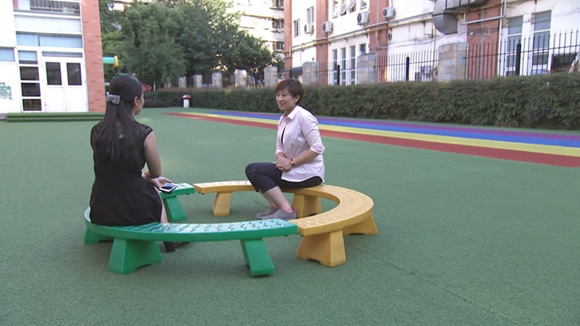
Zhang Yu (L) has made her decision not wanting a second child. (Photo/CGTN)
One child or two?
Zhang Yu, another woman living in Chengdu, once wanted two children. But that changed after she had her first child: Raising one kid is harder than expected. The mounting pressure has forced her family to face reality.
"As my parents are aging, they are beginning to lack energy, and it would not be possible for them to take care of another child," Zhang expressed her concerns. "If I gave up work to take care of my child, I am afraid that I would lose touch with society, and financially, if our family depended solely on my husband's income, he would be under a lot of pressure. I also don't want to be a full-time mother. So gradually, the notion of having the second child has gone."
According to the National Health and Family Planning Commission, despite many women having conflicting thoughts like Zhang, birth rates have risen across China. Close to 18 million babies were born in 2016, up by 1.3 million from the year before. It was the biggest annual increase in two decades. The number of births in Chinese hospitals from January to May 2017 reached 7.4 million, up by about eight percent year on year.
Zhang Liang, deputy chief of the Health and Family Planning Commission of Sichuan, told CGTN: "We opened consultation clinics for those with the second children. These clinics mainly provide services including maternal care and the termination of contraception services. We strengthened the management of maternal classification and emergency obstetric care. We have also established a four-level emergency mechanism, from the township to the provincial level."
Experts say the birth rate can rise further if incentives are offered to those who plan to have second children. For instance, working dads in Jiangsu Province in east China are now allowed to take an entire month's worth of paternity leave - double the amount in other provinces. Countries with aging populations like Japan have also offered cash subsidies, longer maternity breaks, tax perks, and health benefits to help boost the population.
China is aging more rapidly than almost any country in recent history, according to the United Nations. A new study showed population aging could peak by 2070. Experts believe the second-child policy will produce a good result for China's future.


















































